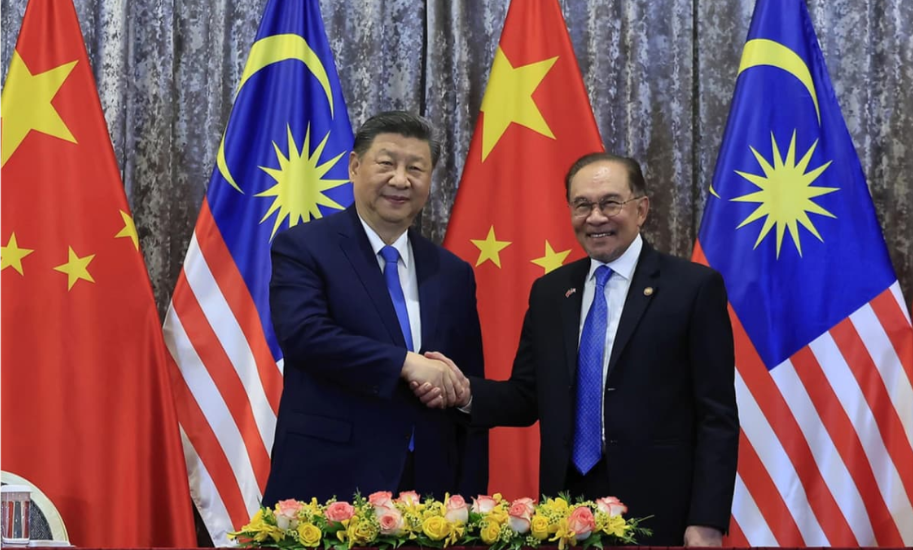How Malaysian Netizens Reacted to Xi Jinping’s State Visit
From 11–17 April, the visit of President Xi Jinping—elected General Secretary of the Chinese Communist Party and paramount leader of the People’s Republic of China—generated 9,446 mentions and over 409,859 engagements online. The agenda included deals covering foreign investment, development projects, artificial intelligence, tourism, and the digital economy. However, what unexpectedly dominated online chatter was the sight of Xi’s Hongqi N701, a rocket-propelled grenade-resistant state limousine—symbolizing both power and extravagance.
President Xi Jinping, known as a consolidator of sole control over the party, the government, and the military, continues to consolidate power through policies and reforms often compared to those initiated by Deng Xiaoping, Mao Zedong, and Hu Jintao. His early life as the son of revolutionary veteran Xi Zhongxun, educated at Tsinghua University, and rise through the Central Committee as party secretary, vice mayor, deputy secretary, vice president, and eventually vice premier, define him as a legacy Chinese politician with enduring global influence.
Our analysis on navigating China’s charms and trade wars and coverage of Malaysian netizens’ reactions to Trump’s reciprocal tariffs announcement highlight key global trade tensions. For more updates and stories, explore our news page.
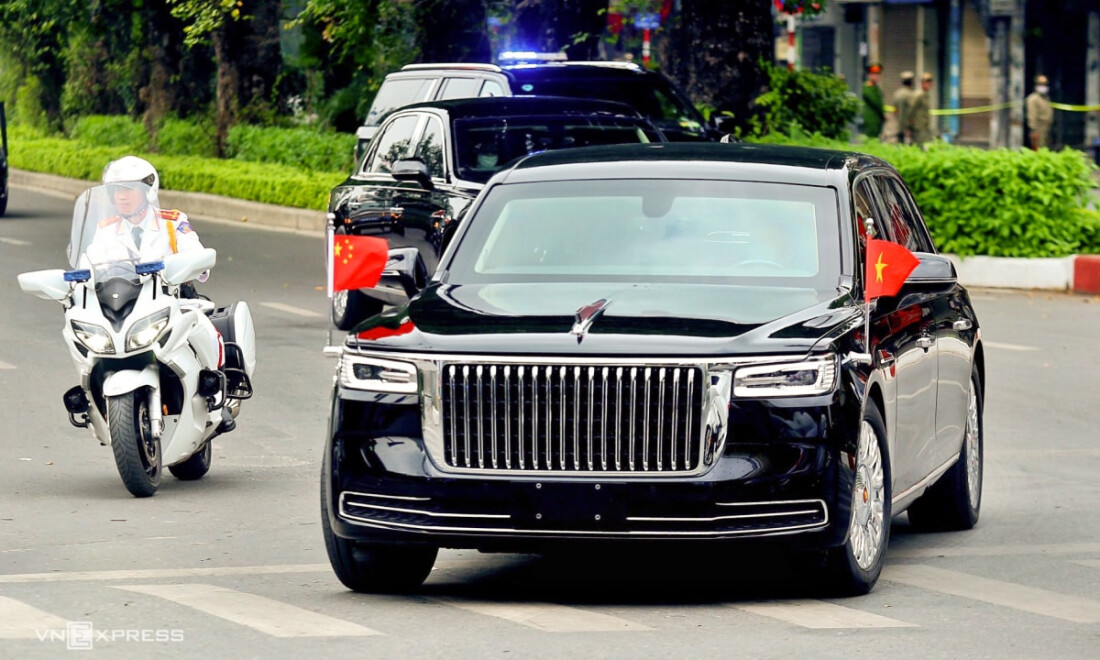
📆 Timeline of Public Reactions
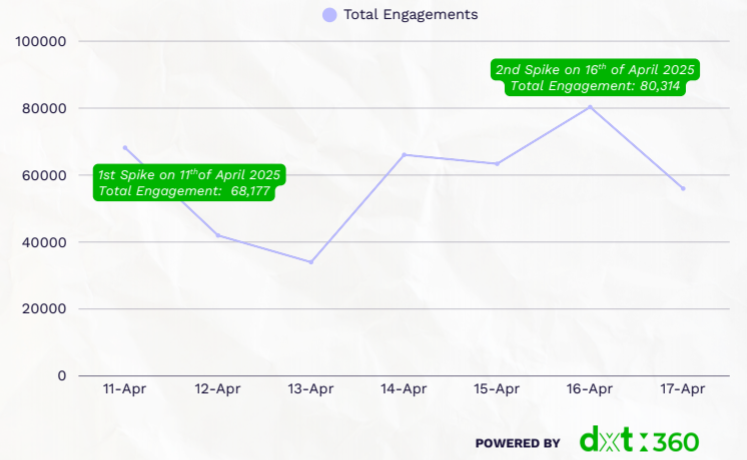
11 April: Engagement Surge Begins
Speculation surged on whether President Xi Jinping’s state visit would enhance Malaysia’s total global trade or lead to economic overdependence on China. Online narratives connected the trip with the ongoing US–China trade war, rising tariffs, and potential geopolitical risks. Mentions of the prime minister, deputy prime minister, and political party alignments echoed through trending topics.
16 April: Peak Engagement Amid Disruption
As President Xi Jinping arrived in Kuala Lumpur, traffic chaos from his motorcade sparked nationwide frustration. Comments ranged from memes to deep political criticism, including skepticism about whether such disruption was justified for a state visit. The phrase “Xi Jinping’s visit: KL’s biggest traffic jam of the year” summed up local sentiment perfectly.
🌐 Where Did the Conversation Happen?
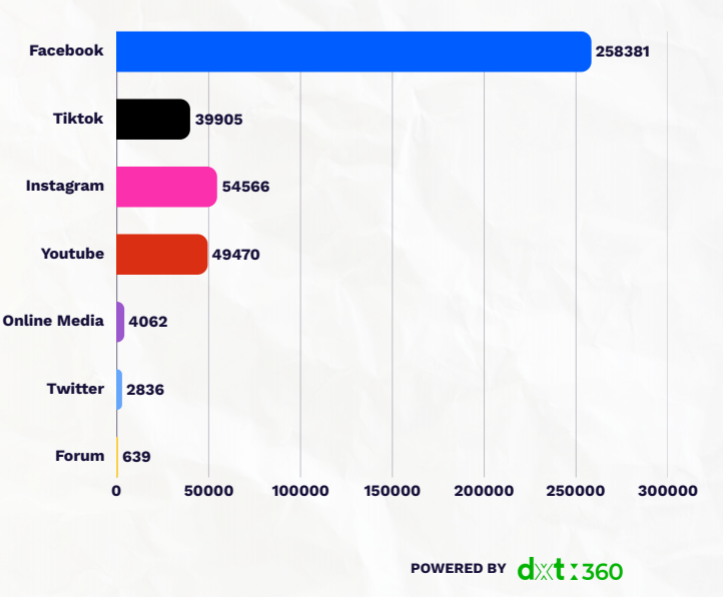
Platform | Engagement Volume
Facebook 258,381
TikTok 39,905
Instagram 54,566
YouTube 49,470
Online Media 4,062
Twitter/X| 2,836
Forums 639
🔥Key Topics That Drove the Conversation
Road Closures and Traffic Disruptions (30%)
Outrage over road closures dominated social media. Many questioned if the benefits of welcoming the Chinese president outweighed the inconvenience. Some called for clearer communication from the government, the prime minister, and the deputy prime minister.
Economic Concerns (18%)
Fear of an unbalanced total trade relationship with China was strong. The CCP-adopted model of influence had many wondering if Malaysia could retain economic sovereignty while welcoming more foreign investment from Beijing.
Anticipation of Xi’s Visit (15%)
From his commanding presence to the armored Hongqi N701, discussions highlighted President Xi Jinping’s power, ceremonial showmanship, and his status among world leaders. His journey through ranks such as vice chairman and leadership in the National People’s Congress brought attention to his distinct political journey.
ASEAN and Regional Impact (14%)
As Malaysia holds the ASEAN Chair, many wondered how this impacts its neutrality amid growing Chinese influence in Asia, particularly with Singapore, Japan, and Latin America navigating complex ties with Beijing.
Malaysia–China Diplomatic Relations (13%)
Many reflected on the evolving diplomatic relations over the last five decades, from the Mao and Deng eras to Xi Jinping’s leadership. The role of the Standing Committee, party consolidation, and the influence of the Chinese Communist Party on smaller nations like Malaysia were frequent themes.
Concerns About Malaysia’s Independence (10%)
Debate raged on whether aligning with the Chinese government would affect Malaysia’s independence, especially regarding rural areas, economic policy, and political party autonomy.
🔎 Word Cloud Analysis: What Malaysians Were Really Talking About
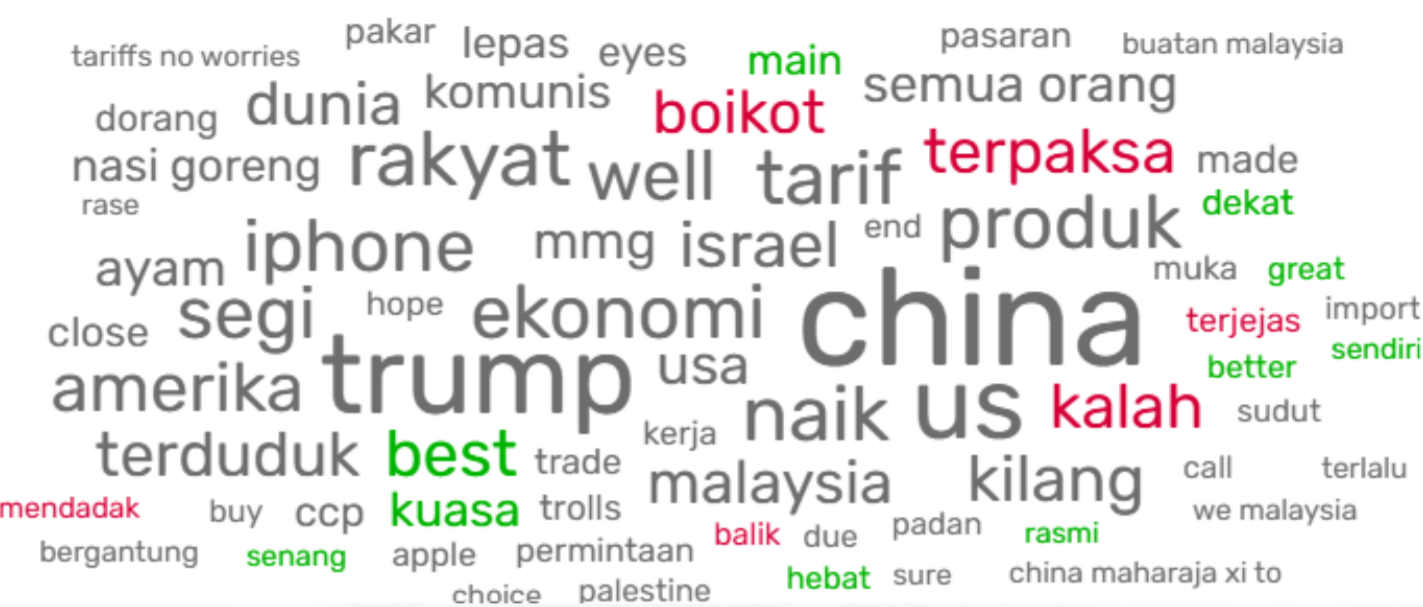
1. US–China Trade Dominated the Conversation
Mentions of “China”, “Trump”, “US”, and “Amerika” indicated strong awareness of global power struggles. Netizens often linked Xi’s visit to ongoing trade conflicts and Malaysia’s strategic position between both sides.
2. Economic Anxiety and Product Affordability
Keywords like “tarif”, “naik”, “ekonomi”, “produk”, “iPhone”, “ayam”, and “nasi goreng” reflected fears over inflation and affordability — from smartphones to food. Terms such as “terpaksa”, “terjejas”, and “mendadak” pointed to sudden disruption, while “balik” was used to criticise political U-turns. Sarcastic phrases like “tariffs no worries” captured public scepticism.
3. Boycotts and Ideological Undercurrents
Terms like “boikot”, “Israel”, “komunis”, and “CCP” revealed ideological tension. Some netizens framed the visit within broader debates on boycotts of Western brands and discomfort with China’s political influence.
📊 Social Sentiment Breakdown
Positive 45% : Netizens praised the visit as a diplomatic success, especially cultural gestures such as Chinese journalists speaking fluent Bahasa Melayu, and Malaysia’s role in ASEAN diplomacy.
Neutral 35% : Observational posts focused on President Xi Jinping’s itinerary, official ceremonies, and news reporting without strong emotional tone.
Negative 20% : Concerns about traffic, economic dependency, and potential threats to national sovereignty dominated critical commentary.
💬 What Netizens Were Saying
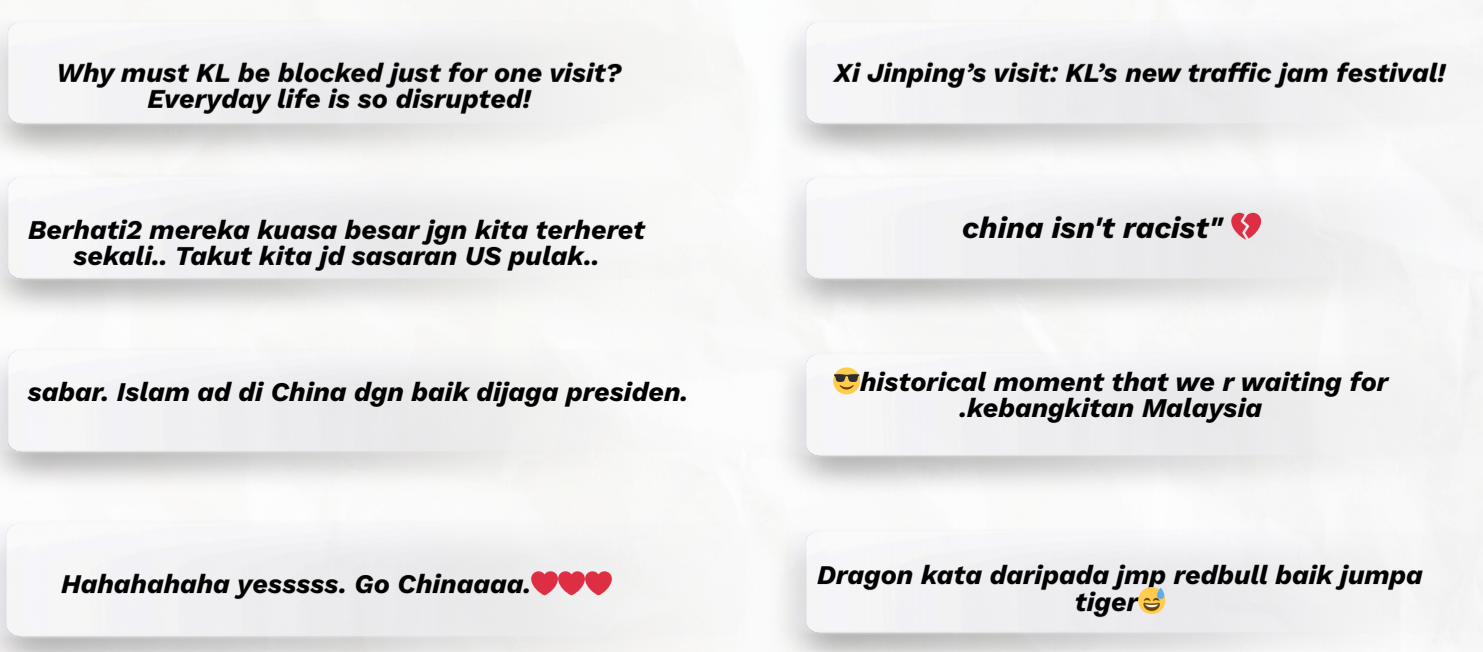
📌 Final Takeaways
Malaysian netizens were both proud and critical, showing a strong awareness of regional geopolitics and national interests.
Disruption and everyday inconvenience dominated early sentiment, often overshadowing the visit’s formal outcomes.
Sovereignty, transparency, and regional diplomacy were key concerns, especially as Malaysia takes a leadership role in ASEAN.
Social media served as both a news source and sentiment barometer, revealing public expectations and anxieties in real-time.
🧭 Final Thought
President Xi Jinping’s visit didn’t just commemorate 50 years of diplomatic ties—it tested the waters of public opinion in a digital-first democracy. As Malaysia navigates the future of its comprehensive strategic partnership with China, voices from the ground show increasing concern over sovereignty, transparency, and fair diplomacy.
With global power shifts underway, President Xi Jinping, the party general secretary, and the Chinese Communist Party represent more than just a foreign entity—they embody a rising model of governance that resonates (or conflicts) with many in Malaysia.
At Dataxet Malaysia, we help organisations stay ahead by understanding what people think, feel, and say — when it matters most. With DXT360, we turn conversation into actionable intelligence.
📧 Email us: info@dataxet.nama.com.my
🔗 LinkedIn: Dataxet Malaysia
📱 Facebook: Dataxet Malaysia

